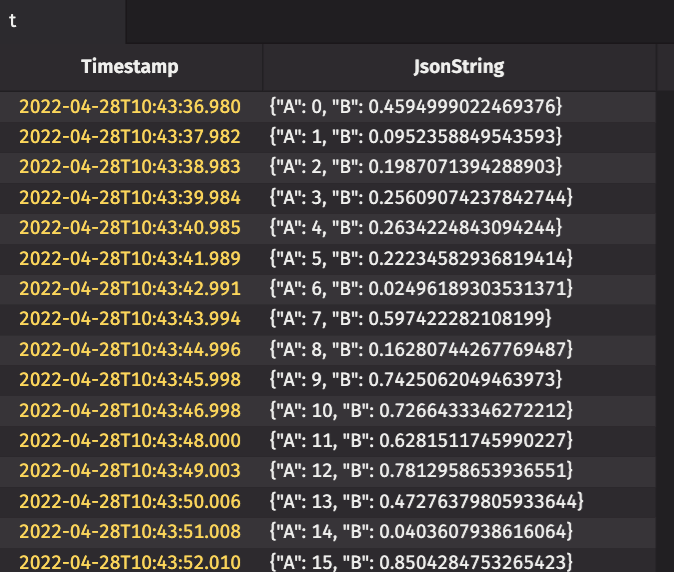JSON is one of the most universal data formats for requesting data via an API. Across languages and applications, if you're working with semi-structured data, you're probably working with JSON. However, as you likely know, working with JSON can be less than fun, especially if the data is nested or complex. In this tutorial, I walk you through creating a real-time database for processing and querying JSON. Starting simple, it builds up to an application that monitors public events on GitHub -- in only 32 lines of code!
During a recent project, I needed to persist a real-time stream of API requests. All of these requests needed to be in the same table, and I had to be able to write complex queries against the requests. Such complex requirements often result in software nightmares.
To support this mixed-schema system, I used Deephaven, a real-time query engine that supports many data types, sophisticated query patterns, and embedded Python functions. JSON is well supported -- including complex and nested JSON.
To create your own real-time JSON database, taking advantage of Deepahven's capabilities, follow the steps below.
Create a real-time table
As a first step, let's create a real-time table to write data to. This is done using a DynamicTableWriter.
Log data
Now let's take real-time data logging to the next level. In real-time applications, data is continuously flowing. Data is pushed into applications by streaming APIs, or pulled in via some sort of query. To illustrate data being pulled into an application, we create a thread, running in the background, that logs a new row every second. By having a logging thread, the main thread can be used for future interactive queries.

Now, we have a real-time streaming JSON source. But, how do we query it?
Query the table
Queries are the easy part. Deephaven is designed to support very complex logic, and queries can use formulas composed of operators, functions, objects, columns, variables, and special variables. For our real-time JSON database, we will use plain old Python functions and modules to query the JSON strings. To understand everything possible with Deephaven query formulas, see User guide: formulas.
Here the get_value function extracts a value from a JSON strings. get_value is implemented using the core Python json module, but you could use any module you like.
Put this to work: GitHub Events
We've created a toy, real-time JSON database that supports both storage and queries. Pretty cool, right?
Now, let's amp things up and create a real-life example.
For this, we will look at all of the events that GitHub makes public. To see the JSON for these events, navigate to https://api.github.com/events. Since the GitHub API does not support streaming, we can download the latest events every 10 seconds.
In real life, when we work with JSON data, it's rarely as simple as the first two examples. As you know, real JSON data is often nested and messy. However, Python's json module makes working with JSON easy. json decodes JSON strings as dictionaries. Then values can be retrieved using JSON keys to look up desired values. get_event_repo illustrates accessing repository URLs by using the repo and url keys.
Now we have a useful application. Using only 32 lines of code, we have created a real-time JSON database to monitor GitHub events.
Since the interesting JSON event data is now available in a Deephaven table, you can use Deephaven queries to analyze the events. For example, you can get all GitHub issue events by running the following command:

What kind of JSON are you working with? Tell us on Slack.

